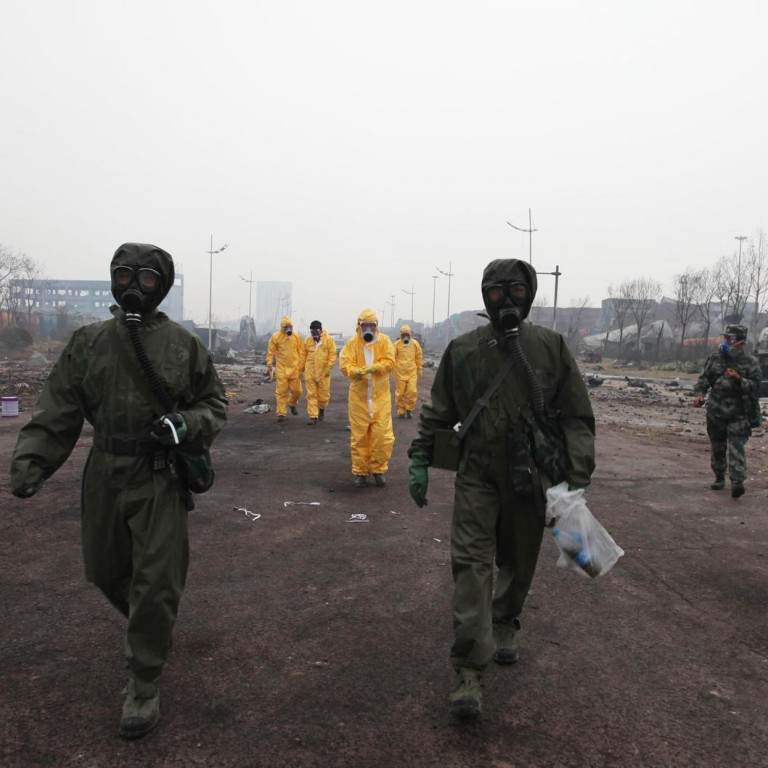
New | Owners of firm that ran Tianjin warehouse used connections to gain their permits
Controllers of Ruihai International Logistics had ties with authorities and those in the industry
One of the main controllers of the logistics company at the centre of last week's deadly warehouse blasts in Tianjin has admitted that his father was the city port's former police chief and that he had good connections with the public security and fire services authorities.
Dong Shexuan - who was detained by police for his involvement in Ruihai International Logistics, which operated the dangerous-goods warehouse - said he held a 45 per cent stake in the company through his high school classmate and Tianjin public servant Shu Zheng.
"I wanted to maintain a low profile because my father worked in [Tianjin Port's] Public Security Bureau, and there would be a negative impact if others knew about it," Xinhua quoted Dong, 34, as saying from the Tianjin No1 Detention Centre.
Dong said his father, Dong Peijun, who died from liver cancer in August last year, had been under investigation.
Another Ruihai controller, former Sinochem Group senior executive Yu Xuewei, held a 55 per cent stake through his wife's cousin Li Liang.
Yu, who worked in Sinochem Tianjin from 1994 to 2012, left the state-owned oil company to form Ruihai with Dong. Yu was familiar with the chemical logistics industry while Dong was well connected with the police and firefighting departments as well as other authorities, Yu told Xinhua.
The pair leveraged their connections to obtain the necessary certifications, Xinhua reported. Ruihai even operated for months without a valid permit after its temporary one expired, before it was issued a formal permit in June.
"But the operation of the dangerous-substances storage was not affected," Yu said.
A safety review of Ruihai conducted last year and obtained by the said the selection of the warehouse's site was in line with the city's development plan and rules. The review - by 10 people from Zhongbin Haisheng, one of Tianjin's two licensed safety review agencies - concluded Ruihai had "a rather sound safety management system".
Zhongbin Haisheng has strong government connections, including with the Tianjin Firefighting Institute, which is under the Ministry of Public Security, the report said.
Businesses handling dangerous chemicals are required to site their warehouses at least 1km from public buildings, transport lines or factories.
But Ruihai's warehouse in the Binhai New Area was about 600 metres from a residential area, a highway and a light rail line. All were damaged in the massive blasts last Wednesday night.


